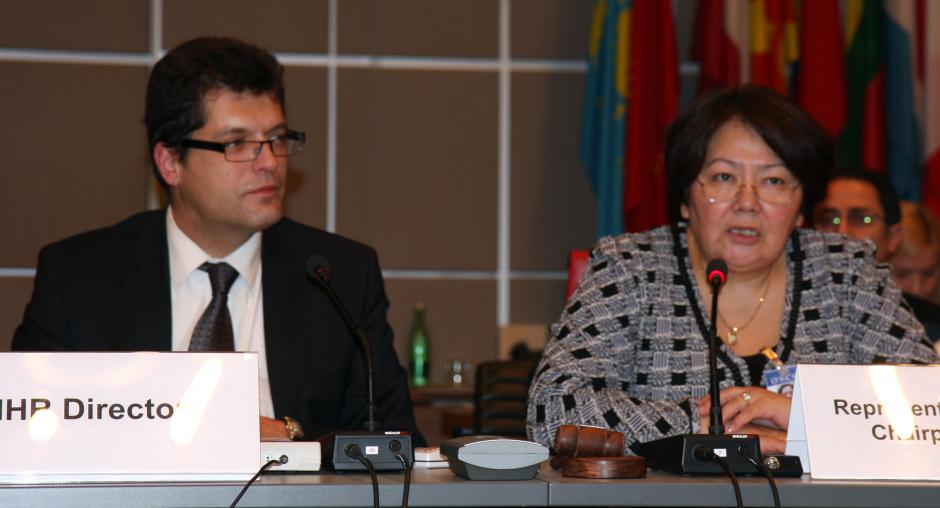Ahead of Human Rights Day, OSCE human rights chief, UN Special Rapporteur call for removing undue restrictions on religious freedom

VIENNA, 9 December 2010 - Janez Lenarcic, the Director of the OSCE Office for Democratic Institutions and Human Rights (ODIHR), and Heiner Bielefeldt, the UN Special Rapporteur on Freedom of Religion or Belief, today called on states to remove undue restrictions on the fundamental freedom of religion or belief.
Speaking ahead of tomorrow's Human Rights Day at a special OSCE meeting on the topic, Lenarcic and Bielefeldt warned that individuals and communities still face impediments in enjoying freedom of religion or belief in many countries.
Lenarcic noted that some states tend to promote tolerance and mutual understanding among major faith groups while neglecting their commitment to respect religious rights for all: "Fostering tolerance and dialogue among mainstream religions is to be encouraged, but it cannot substitute for the protection of the freedom of religion or belief of all members of society, including smaller and less popular groups."
He said there are still countries in the OSCE region where individuals and groups cannot freely study religion, assemble to worship, disseminate religious literature or establish charitable organizations.
UN Special Rapporteur Bielefeldt stressed that everyone is entitled to all the rights and freedoms set forth in the Universal Declaration of Human Rights, without any discrimination based on religion or belief.
"Freedom of thought, conscience and religion includes freedom to change one's religion or belief and freedom to manifest religion or belief in teaching, practice, worship and observance," he said, and called on states "to respect freedom of religion or belief, to actively protect such freedom against undue interference, and to promote an atmosphere of tolerance".
The two-day meeting, organized together with Kazakhstan's OSCE chairmanship, coincides with Human Rights Day, which marks the anniversary of the adoption of the Universal Declaration of Human Rights on 10 December 1948.
Ambassador Madina Jarbussynova, who represented the OSCE Chairperson-in-Office at the meeting, stressed that respect for freedom of religion or belief is at the core of the Universal Declaration of Human Rights and OSCE human dimension commitments.
At the OSCE Summit in Astana last week, the leaders of the 56 OSCE participating States agreed on a declaration that called for greater efforts to promote freedom of religion or belief. The Astana Commemorative Declaration also reiterated that the protection and promotion of human rights is the first responsibility of government, and expressed appreciation for the important role played by civil society and free media in helping to ensure full respect for human rights, fundamental freedoms, democracy and the rule of law.
